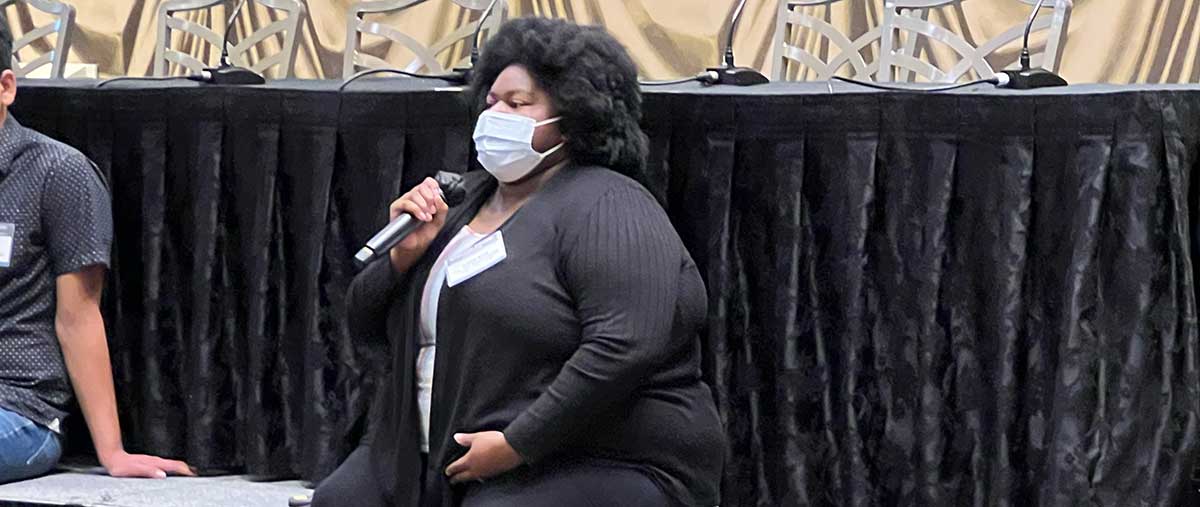More research, services needed for pregnant and parenting transition-age youth
What do pregnant and parenting transition-age youth need? More services and more understanding of their specific needs and challenges, presenters at the first Achieving Success convening in Las Vegas recently said.
Svetlana Shpiegel, an associate professor at the Department of Social Work and Child Advocacy at Montclair State University in New Jersey, has focused her research on the most vulnerable transition-age youth populations, including those who are pregnant and parenting.
“They need a lot of support in the early years when the children are small; they need help with housing and childcare,” Shpiegel said, speaking on a research panel at the convening. “But, if that help is provided, you can see that over the long term, their outcomes improve and having a child can be a motivating factor.”
Some of her research also focuses on how the COVID-19 pandemic affected this group.
Youth who were parenting really struggled during COVID because of the closure of schools and childcare centers. COVID is likely not going to be the last emergency we experience. We need to think about how we prepare our systems to better help young people in emergency situations.
States and jurisdictions can access Title IV-E funding for services for pregnant and parenting youth through the Family First Prevention Services Act.
Lanitta Berry, a member of Foster Youth in Action and a LifeSet Scholar alum, brought her lived experience to a discussion of policies needed to support pregnant and parenting transition-age youth. She began her presentation by sharing statistics from three studies:
- Girls in foster care give birth at a rate more than 50% higher than girls in the general population.
- A California study found that one in four girls in foster care at age 17 have given birth before their 20th birthday.
- Only 50% of young mothers get a high school diploma by age 22, compared to 89% of women who did not have a teen pregnancy.
- One third of teenage mothers never get a GED or diploma and less than 2% of teenage mothers attain a college degree by age 30.
- Pregnant and parenting young mothers also face housing instability. About 10% of homeless girls living on the street or in shelters are pregnant.
Berry said more data was needed, particularly around specific populations of pregnant or parenting young people. Data from correctly designed studies could be used to identify needs and show the success of interventions.
She suggested getting accurate and meaningful data would depend on “having the right people, asking the right questions and having an open mindset.”
Berry said including those with lived experience in study preparation, implementation and data interpretation would strengthen research processes.
“There are times when there is a disconnect between the people who create services, the people who create policies and resources and the people who are receiving them,” Berry said. “Having people with lived experience is so important.”
For more information on the Las Vegas Achieving Success convening or upcoming meetings, please email: achievingsuccess@youthvillages.org.

